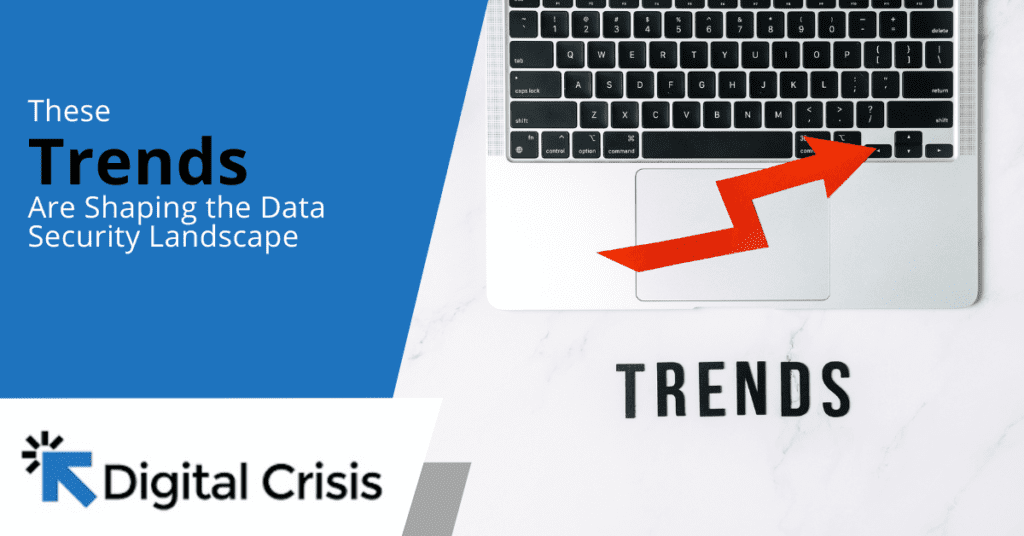
In our interconnected digital world, data security has become a paramount concern for individuals and organizations alike. With the proliferation of cyber threats and the increasing sophistication of malicious actors, staying ahead of the curve is essential.
In this article, we will delve into the evolving landscape of data security and explore the trends that are shaping its future.
Zero Trust is a cybersecurity framework that challenges the traditional perimeter-based security model. In the past, organizations relied on the assumption that everything inside their network is trustworthy. However, with the rise of sophisticated cyber threats, this approach is no longer sufficient.
Zero Trust operates on the principle of “never trust, always verify.” It assumes that threats may come from both outside and inside the network. This trend involves continuous verification of users and devices, regardless of their location or network environment. As organizations adopt remote work models and cloud services, the Zero Trust architecture provides a more robust defense against unauthorized access and data breaches.
The integration of Artificial Intelligence (AI) and Machine Learning (ML) into cybersecurity practices is revolutionizing the way we detect and respond to threats. Traditional methods often struggle to keep pace with the sheer volume and complexity of cyber threats.
AI and ML algorithms, on the other hand, can analyze vast datasets in real-time, identifying patterns and anomalies that may indicate a potential security breach.
AI-driven threat intelligence enables organizations to predict and prevent attacks before they occur. Additionally, machine learning algorithms can enhance incident response by automating certain aspects of cybersecurity, allowing security teams to focus on more complex and strategic tasks.
Endpoints, such as laptops, smartphones, and IoT devices, have become primary targets for cybercriminals. The increasing number of remote and mobile workers has expanded the attack surface, making endpoint security a critical component of a comprehensive cybersecurity strategy.
Endpoint protection involves securing devices that connect to a network. This includes implementing robust antivirus software, encryption tools, and ensuring that devices are regularly updated with the latest security patches.
As the lines between personal and professional devices blur, organizations must prioritize endpoint security to safeguard sensitive data from potential breaches.
Governments and regulatory bodies worldwide are recognizing the importance of data protection. The implementation of stringent regulations, such as the General Data Protection Regulation (GDPR) and the California Consumer Privacy Act (CCPA), reflects a global effort to hold organizations accountable for the handling of personal data.
Staying compliant with these regulations is not just a legal requirement but also a crucial aspect of maintaining trust with customers. Non-compliance can result in severe penalties and damage to an organization’s reputation. As the regulatory landscape continues to evolve, businesses must adapt their data security practices to ensure alignment with the latest compliance standards.
While quantum computing holds the promise of solving complex problems at an unprecedented speed, it also poses a significant threat to traditional encryption methods. Current encryption algorithms, which rely on the difficulty of factoring large numbers, may become obsolete with the advent of quantum computers.
Post-quantum cryptography is emerging as a response to this impending threat. Researchers are developing encryption methods that can withstand the computational power of quantum computers. As organizations prepare for the quantum era, investing in quantum-resistant cryptographic solutions is becoming a priority to ensure the long-term security of sensitive data.
Amidst the technological advancements in cybersecurity, the human element remains a critical factor. Cybersecurity awareness and training are essential components of a robust defense strategy.
Phishing attacks and social engineering tactics often exploit human vulnerabilities, making it imperative for organizations to educate their workforce about potential threats and best practices for maintaining security.
Regular training sessions, simulated phishing exercises, and awareness campaigns contribute to creating a security-centric culture within an organization. By empowering employees to recognize and respond to potential threats, businesses can significantly reduce the risk of successful cyber attacks.
The evolving data security landscape demands a proactive and comprehensive approach to safeguarding sensitive information. The adoption of Zero Trust architecture, integration of AI and ML in cybersecurity practices, emphasis on endpoint security, compliance with evolving regulations, preparation for quantum computing challenges, and prioritizing cybersecurity awareness collectively contribute to building a resilient defense against cyber threats.As we navigate these trends, it’s crucial for organizations to stay informed and agile in adapting their security strategies. At Digital Crisis, we understand the dynamic nature of data security and are committed to providing cutting-edge solutions to protect your digital assets. For personalized consultation and to enhance your organization’s cybersecurity posture, contact us today.